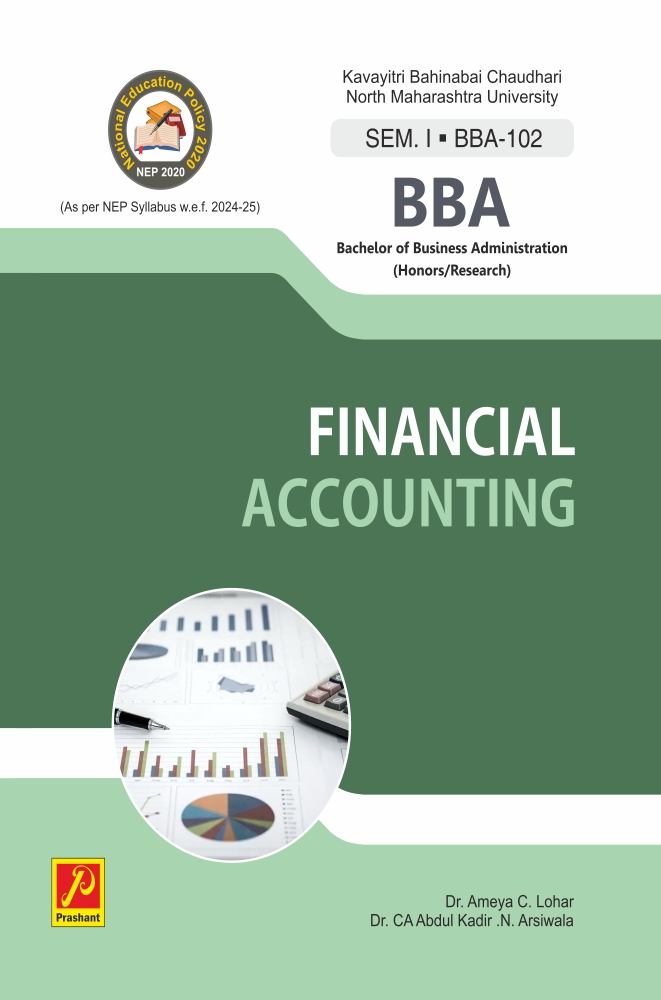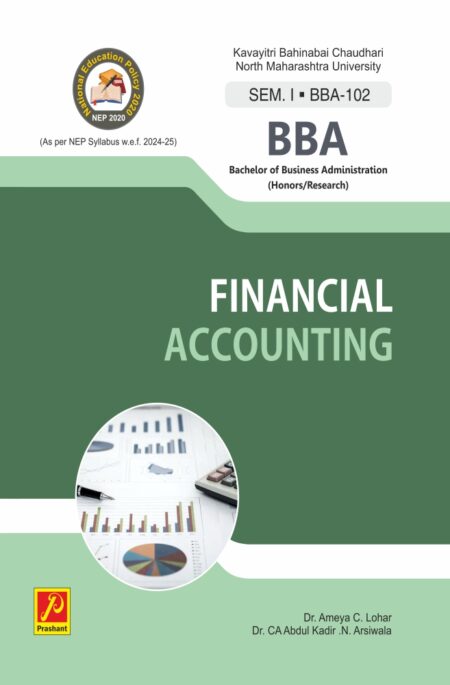Financial Accounting
B.B.A. | SEM. I | BBA-102
Authors:
ISBN:
Rs.225.00
- DESCRIPTION
- INDEX
Financial Accounting is crucial for understanding how businesses manage money by recording, summarizing, and analyzing transactions. It helps businesses track income and expenses, providing insights into profitability and financial health. Key concepts include journals, ledgers, trial balances, and financial statements like profit and loss accounts and balance sheets. This knowledge is valuable for businesses, individuals managing personal finances, and students pursuing careers in commerce, management, and accounting. It ensures transparency and accountability, allowing businesses to communicate with stakeholders such as investors, banks, and the government.
Chapter – 1
Introduction to Accounting, Accounting System and Process
1.1.1 Meaning of Accounting
1.1.2 Need for Accounting and Accounting Information System
1.1.3 Stakeholder using Accounting Information
1.1.4 Qualitative aspects of financial accounting
1.2.1 Accounting standards in India and International (outline)
1.2.2 Branches of Accounting
1.2.3 Types of Business Organisations
1.2.4 Accounting taxonomy
1.3.1 Meaning of Accounting Concepts and Conventions
1.3.2 Income and Expenditure Concept in Accounting
1.3.3 Classification of Income and Expenditure
1.3.4 The Accounting Equation
1.3.5 Accounting Process
1.3.6 Contingent assets and Liabilities
1.3.7 Fictitious Assets
Chapter – 2
Recording Transactions and Trial Balance
2.1 Transactions – Nature, Entry in Journal, Purchases, sales, Returns, Receivables, and payables, Inventory, Depreciation and amortizations, reserves, Intangible assets accounting.
2.2 GST transactions Entry in Ledger.
2.3 Accounting accuracy through Trial balance, correction of errors.
Chapter – 3
Final Accounts
3.1 Preparation of Trading and Profit and Loss account
3.2 Preparation of Balance Sheet
3.3 Adjustments in Final Accounts
3.4 Disclosures in Final Accounts
3.5 Practical Problems
Author
Related products
-
Financial Markets
Rs.210.00 -
Business Communication
Rs.135.00 -
Advanced Accountancy – IV
Rs.165.00









